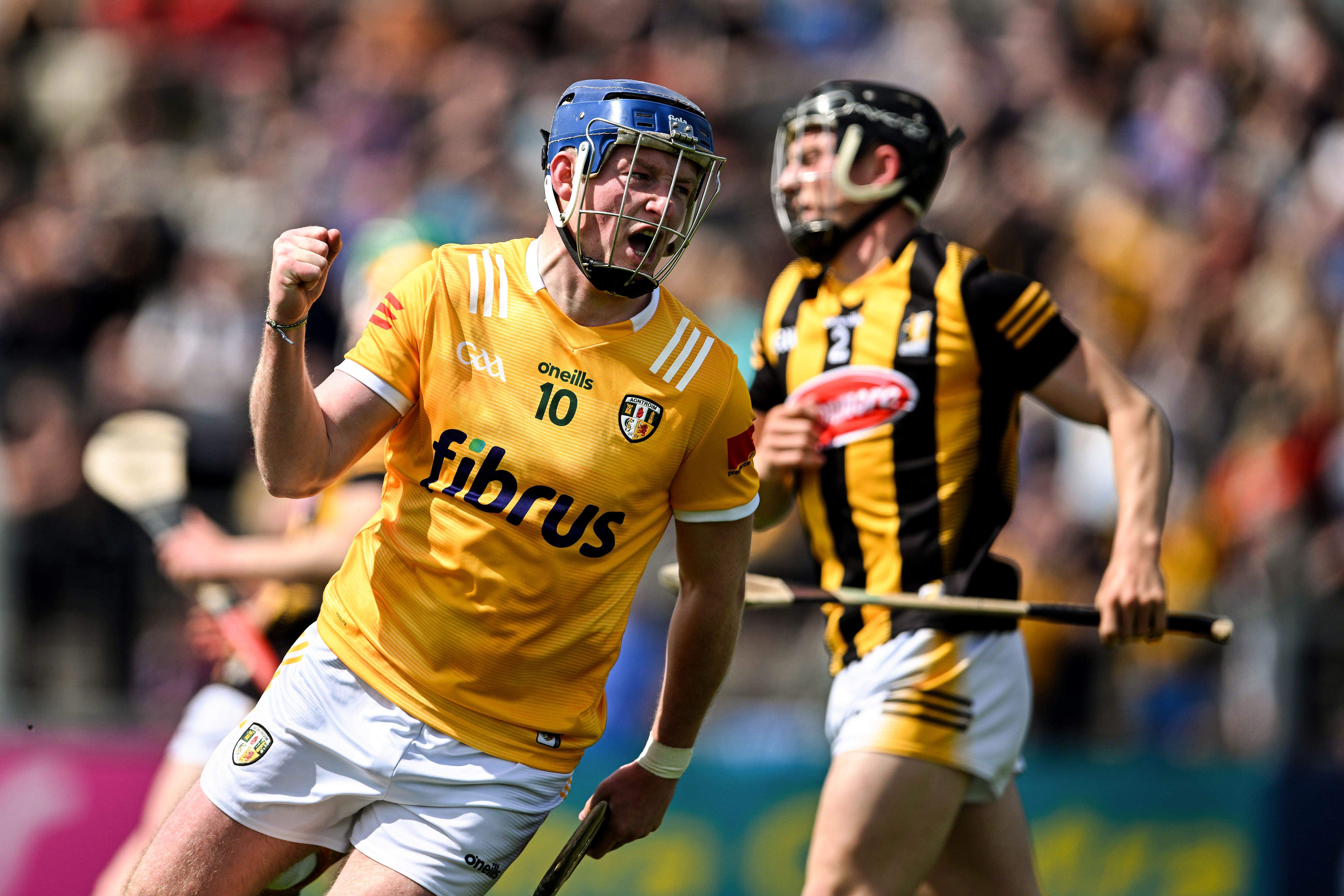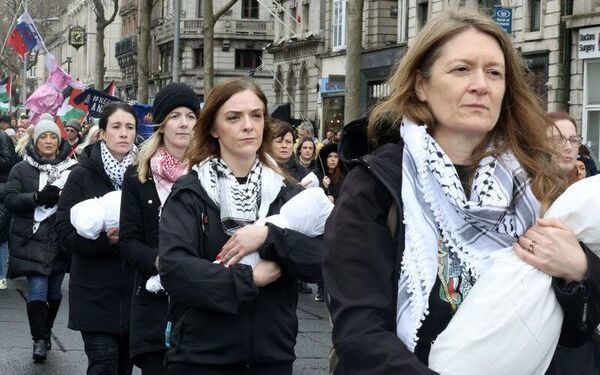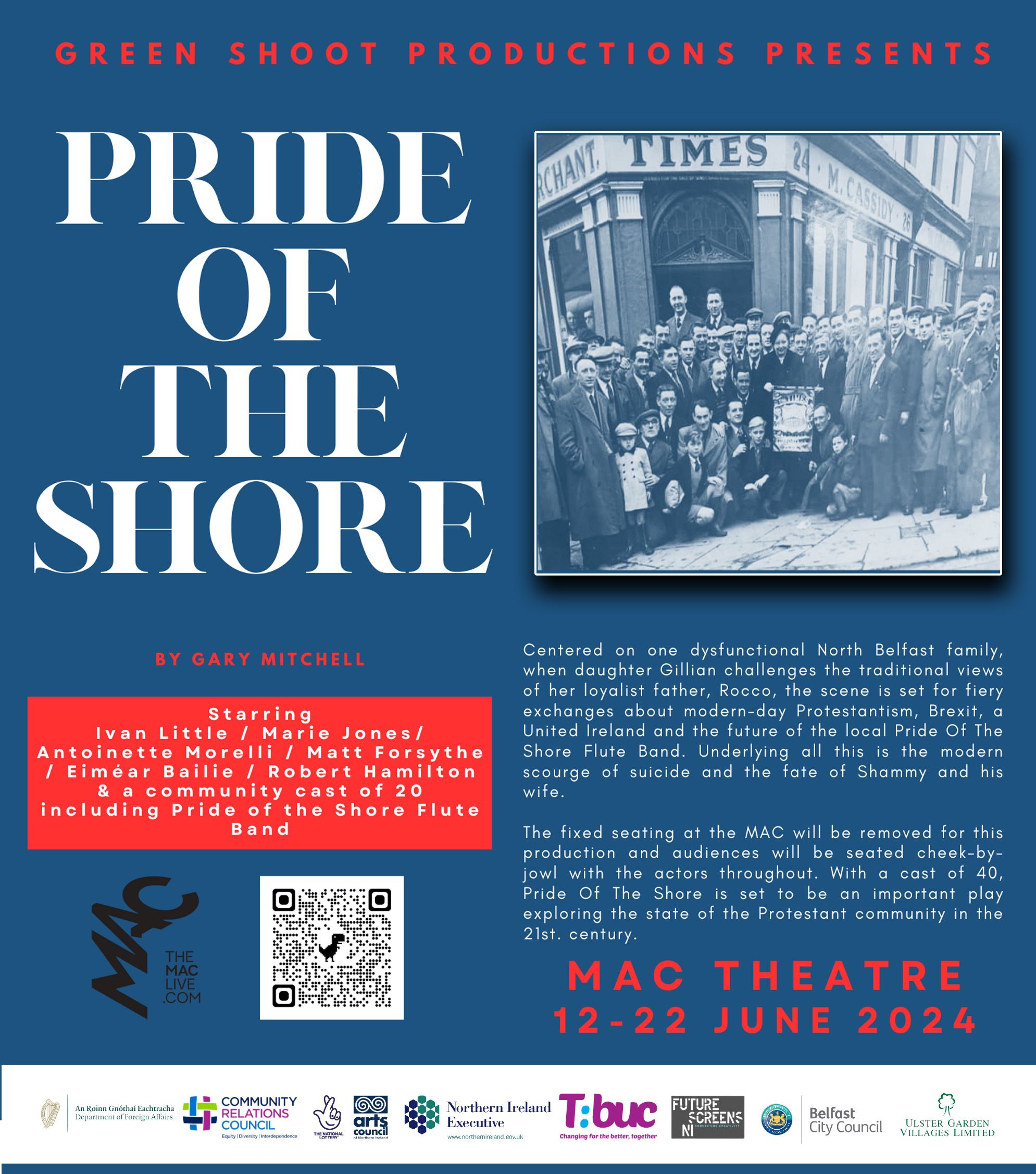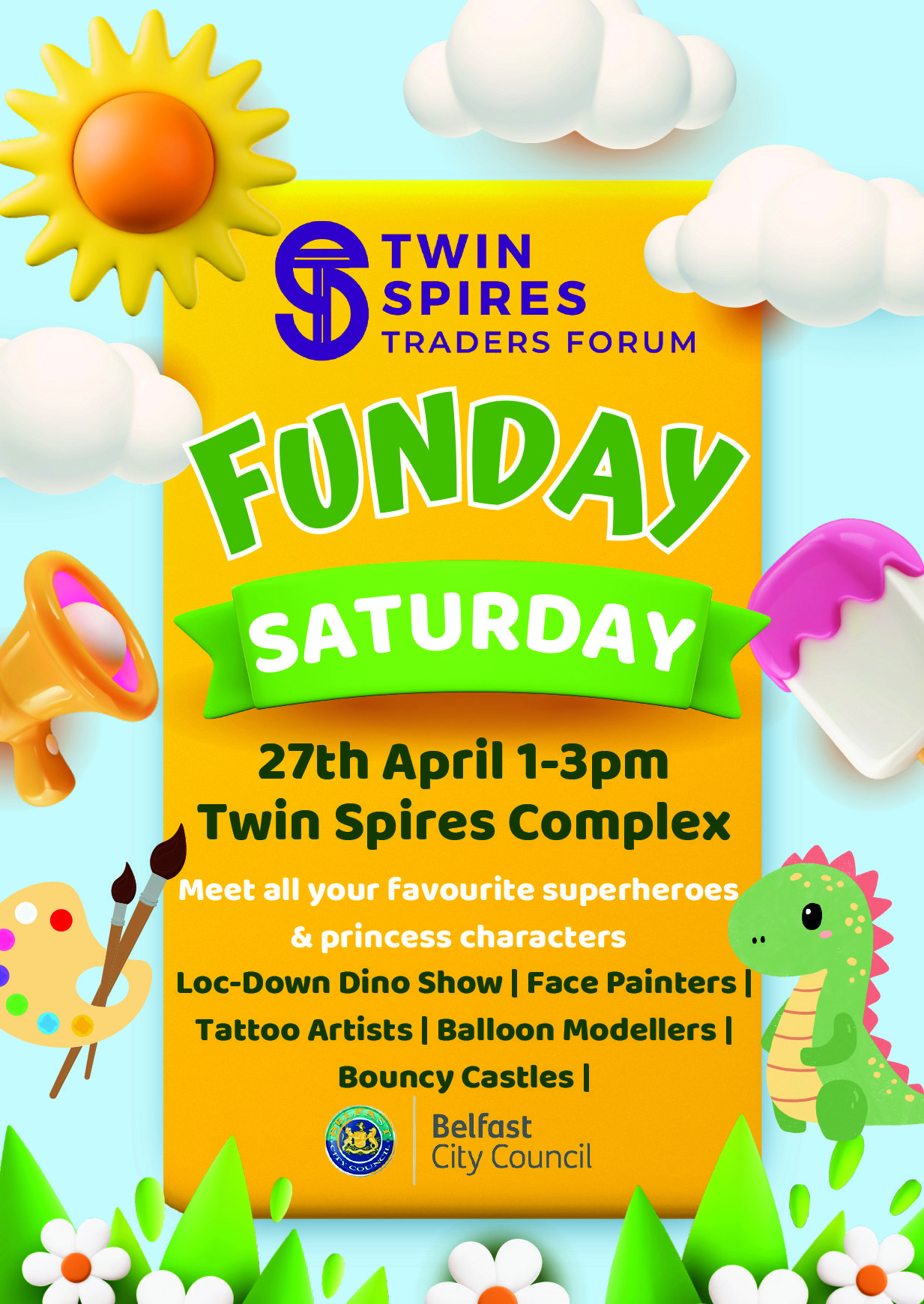24 YEARS ago I wrote a short piece for Antrim 2000. I discovered it this week when I was clearing out three decades of accumulated books, newspaper clippings and assorted pamphlets. Since then much has changed in the Gaeldom. The most important change is probably the growth of women's football. Until recent times women were confined to camogie. Now ladies' football is the fastest growing Gaelic game.
I look forward to the outworkings of the Steering Committee for Integration, chaired by Mary McAleese. 2027 has been revealed as the year that the GAA, the Camogie Association and the Ladies' Gaelic Football Association will come together as one. More needs done in the meantime to give women Gaels parity with their male contemporaries.
2027 will also see the emergence of the new Casement stadium. Another positive.
Television coverage has improved also. Mighty work is being done by pundits, including some great podcasts and local print media columns. The BBC as a public service has more to do to bring in parity with other sports. Some county club finals have capacity attendances. That needs reflected in coverage. The RTÉ blockage of northern access to some fixtures is downright insulting. So too with the lack of local Council playing facilities. There is much more to be done by all concerned.
In Belfast, hurling remains under pressure. Country clubs continue to stay ahead of city hurlers. That’s to their credit. This is despite the mighty work of Gaels at all levels of the Association in Belfast.
Hugh McGettigan, son of Sean McGettigan, the chair of the committee that helped build Páirc Mhic Asmaint in 1953 reflects on the amazing legacy left over 70 years later by that group and looks forward to the stadium's exciting future! 🏟️💛🤍@RossaGACBelfast @AontroimGAA pic.twitter.com/yUQfqpcTpW
— Casement Park (@CasementPark) November 16, 2023
Local clubs and their legions of voluntary helpers, committees, players, coaches, mentors, fundraisers and supporters remain the back bone of the Gaeldom across the county, the nation and the diaspora. Our county boards do mighty work. So do local schools, including Coláiste Feirste, which is progressing nicely. Connections between schools, clubs and county will pay dividends in developing our player base.
We are lucky to have such a living popular tradition. Last Friday’s Late Late Show was a great celebration of this and a fitting testimony to An Cumann Lúthchleas Gael as more than sporting organisation. It is a family. It is us at our best.
There was a time when Irish culture, including our games, was banned. In our own time, carrying a hurling stick in Belfast was illegal. So the last twenty five years of Gaelic games have been amazing. We can look to the next twenty five years with confidence.
Anyway, here's that piece from 2000.
The Glory Of Gaelic 2000
My first love is hurling. That includes camogie. Although there are those who will argue that the camógs play a different game. I think they play a better game. Then comes football, which is mainly a kind of sport to keep hurlers fit. Handball is much under-rated and I am too out of condition now to even think of competing, though I know some aged Belfast men who are still up to Championship standard.
Recently, I was told, though I can’t vouch for this, that rounders is also a Gaelic game. Maybe some of your readers could confirm this.
So what does it all mean? How important are Gaelic games? What part do they play in our lives?
To suggest that one particular sport is better than another simply because it is a native game borders on xenophobia. So, Gaelic games are not necessarily better than other games simply because they are Gaelic. They are better simply because they are better.
Soccer is a pedestrian sport, hyped by big money, more entertainment than athleticism. An odd time you would see a good match. Rugby isn’t too bad. In fact it can be very good and I wouldn’t mind getting more time to learn about it. Croquet and tennis and ice skating are okay so far as they go but they are not exactly team sports. Golfing is less elitist than it used to be and I presume that even bad hurlers could be good golfers and that a half decent hurler could be a great golfer. Tiger Woods’ people come from Dunloy.
There is merit in all sport and I can’t think of one that I would be against. Not on principle anyway, though poorly managed boxers battering each other’s brain out has never appealed to me. At the same time Muhammad Ali is one of my sporting icons. Him and Sambo McNaughton.
Cricket is popular in Derry City. The least said about that the better. It just goes to show that everyone has their own taste. And that is how it should be.
But Gaelic games are special not only because of their skills – the degree of athleticism, teamwork and sheer commitment involved. In this context even a sceptic would concede that they compare favourably with any other sport and a neutral would agree that they outclass all alternatives. I know other ball players who have been amazed at how far and how accurately a senior footballer can kick a dead ball and hurling still bewilders visitors from other disciplines.
But Gaelic games are special because they are firmly rooted in local communities and open to all who support the Gaelic code. Because they bring drama and excitement, craic and huge enjoyment to players and spectators alike. Because everyone can be an expert. Because they are part of what we are. Uniquely Irish. No better on that basis than anyone else but special nonetheless.
Hurling
Antrim in Cú Chullain mode
Cheers me up
On the long road home.
Hurling is the victor.
Losing is no shame.
The joy is in playing
This warriors’ game.
Lá breithe shona duit, Abdullah Öcalan
THE Good Friday Agreement was 26 years old on Wednesday, April 10. For almost all of that time Abdullah Öcalan, a founder of the Kurdistan Workers' Party, has been in prison in Turkey. There is a mural tribute to Abdullah on the international wall in Northumberland Street. April 4 was his 75th birthday.
Held in solitary confinement for years, denied family visits for much of that time, he has nonetheless become a voice for peace, a leader willing to offer the hand of friendship to enemies.
There are alternative ways to resolve long-standing differences. It takes patience and leadership.
INCARCERATED: Kurdish leader Abdullah Öcalan remains locked up in Turkey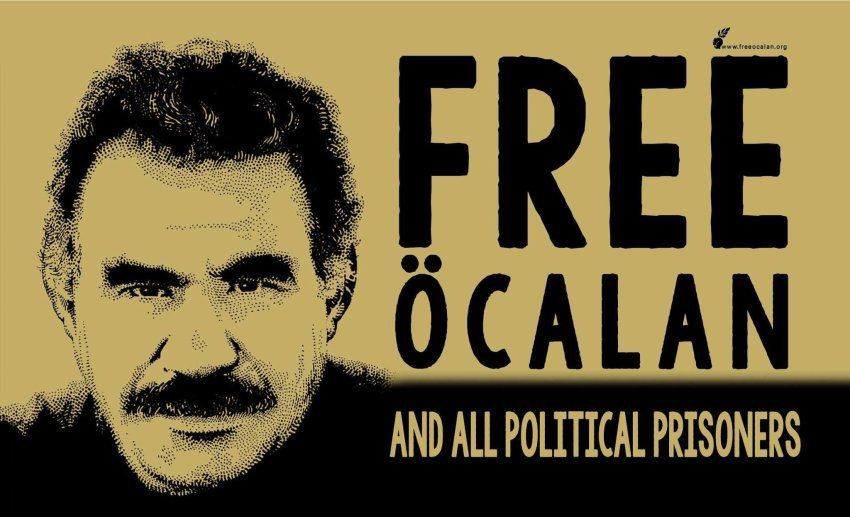
Öcalan has demonstrated that leadership. Despite incarceration, he has forged a road map to peace that commits the Kurdish people to democracy and freedom and tolerance. He has said that it is time to “silence the weapons and let the ideas and politics speak.” Öcalan wants a “new beginning” that will bring the Kurdish people’s struggle into a new phase in which they can through negotiation create an equal, free and democratic country for "all peoples and cultures".
I commend Abdullah for his leadership and vision and urge the Turkish government to release him.
Six months of Hell
This week marks six months since the attack by Hamas on southern Israel and Israel’s vengeful genocidal response to that. October 7 was wrong, but it didn’t happen in a vacuum.
Since 1948 when Palestine was forcibly partitioned and three quarters of a million Palestinians were forced to flee their homes, the Israeli state has further occupied the West Bank, for a time the Gaza Strip, built illegal settlements on Palestinian land and imposed a brutal apartheid regime.
In the decades since then, scores of resolutions condemning Israeli behaviour have been passed by the UN Security Council and General Assembly. Israel has ignored them all.
ATROCITY: Seven aid workers were killed on an Israeli missile attack on a World Central Kitchen vehicle convoy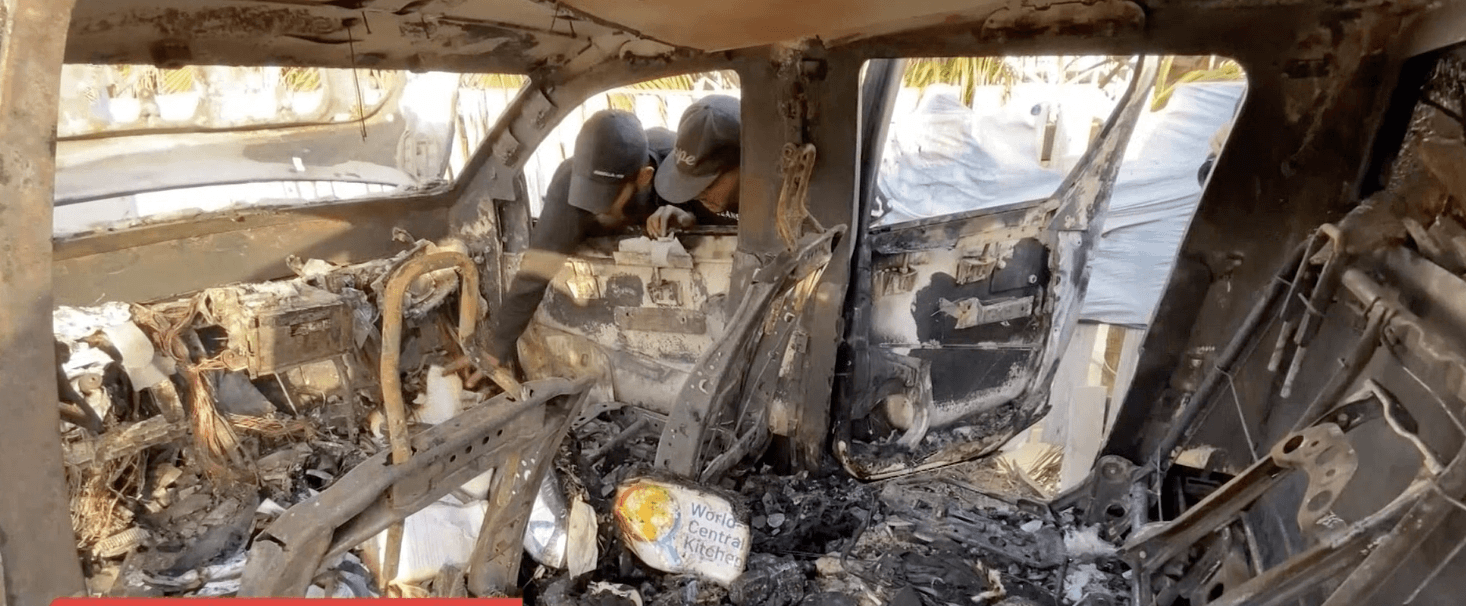
Six months on almost 35,000 Palestinians, including 15,000 children, have been killed by Israeli bombs and snipers, and now by starvation. Scores of UN aid workers and now several foreign aid workers have been targeted and killed. Rafah remains under threat. In addition, Israeli forces attacked Southern Lebanon and last week bombed the Iranian Consulate in Damascus. These actions have increased concern that Netanyahu is trying to provoke a wider war to bolster his own position which is now under increasing pressure within Israel and internationally.
So what can we do? Increase pressure on the Irish government and its new Taoiseach to take firm action against Israel. And continue to demand an immediate ceasefire; the release of all hostages – Israeli and Palestinian; an end to the genocide; humanitarian aid for Gaza; the withdrawal of Israeli forces from Gaza; displaced Palestinians to be able to return home; and the lifting of the illegal blockade of Gaza.

